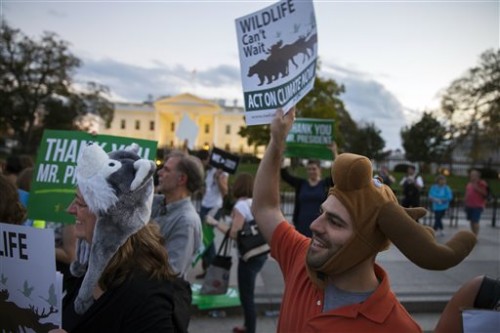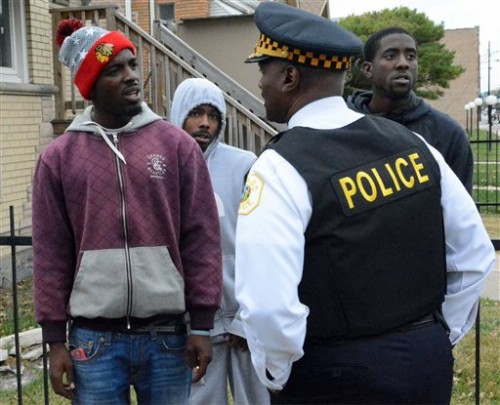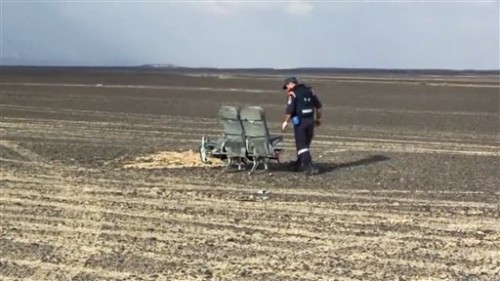In this week’s headlines: Obama rejected the Keystone pipeline, a 9-year-old boy was murdered in Chicago and officials across the world continue to speculate about a Russian plane crash.
Obama rejects Keystone pipeline

President Barack Obama killed a Canadian energy giant’s application to build the Keystone XL pipeline on Friday, declaring the proposed project wouldn’t serve U.S. national interests and would have undercut America’s global leadership on climate change. The decision capped a seven-year saga that spiraled into one of the biggest environmental flashpoints of Obama’s presidency.
Announcing his decision at the White House, Obama said he agreed with Secretary of State John Kerry, whose department recommended rejecting the proposal for a 1,179-mile pipeline crossing the nation’s heartland. He downplayed the claimed economic benefits of the pipeline, arguing it wouldn’t have lowered U.S. gas prices, created long-term jobs or reduced U.S. dependency on foreign energy.
“This pipeline would neither be a silver bullet for the economy, as was promised by some, nor the express lane to climate disaster proclaimed by others,” Obama said in the Roosevelt Room.
Killing the pipeline allows Obama to claim aggressive action on the environment, potentially strengthening his hand as world leaders prepare to finalize a major global climate pact. Obama used the occasion to announce his plans to travel to Paris in the coming weeks for talks on that agreement, which Obama hopes will be a crowning jewel for his environmental legacy.
Obama’s decision places him in a direct confrontation with Republicans and energy advocates that will almost surely spill over into the 2016 presidential election. The GOP field is unanimous in support of Keystone, while Hillary Rodham Clinton, Bernie Sanders and the other Democratic candidates are opposed.
The rejection also risked damaging U.S. relations with its neighbor and major trading partner. New Canadian Prime Minister Justin Trudeau said he was “disappointed by the decision,” but pledged to pursue a “fresh start” with Obama nevertheless.
Environmental groups hailed Obama’s decision, with some declaring Friday “a day of celebration.”
No leads in murder of 9-year-old boy

A 9-year-old Chicago boy who was fatally shot this week was “lured” from a park into an alley and executed because of his father’s alleged gang connections, police Supt. Garry McCarthy said Thursday in a crime he described as among the most “unfathomable” of his 35 years in policing.
Tyshawn Lee, an elementary school student headed to his grandmother’s house, was shot in the head and back Monday in a neighborhood alley on the city’s South Side.
Since his death, a ballons, teddy bears and candles have been placed at the site of the killing in the Auburn Gresham neighborhood. More than $17,000 has been raised on GoFundMe to help the family while police continue to search for the killer.
McCarthy told reporters Thursday that the slaying was the result of two gangs fighting, potentially in a string of retaliatory events dating back months. He said the boy’s father isn’t cooperating with police.
McCarthy called it probably the “most abhorrent, cowardly unfathomable crime that I’ve witnessed in 35 years of policing.”
“Everybody is sick; everybody is disgusted.”
The child’s father, Pierre Stokes, has disagreed with authorities’ characterization of him and said he’s easy to find. He hasn’t talked about whether he’s a gang member, but said police have spent more time pursuing him than finding out who killed his son.
“I answered every question they asked me,” he told reporters Thursday not far from the spot his son was killed. “They’re not asking me questions that I know. I don’t know the questions that they asked me.”
A memorial for the boy — stuffed animals, candles and balloons — lingers in the alley.
Police have executed several search warrants in the investigation, but refuse to release details. A “person of interest” turned themselves in to police Wednesday and was released between late Wednesday and early Thursday without charges.
Chief of Detectives Constantine Andrews said Nov. 3 that before the shooting, an argument broke out among a group of people in the alley where the boy’s body was found. Those who were in the alley left the scene after the shooting.
Authorities have said they know the gangs and individuals involved but need help assessing who did what. They reiterated a plea for any information that will help lead to charges, acknowledging fears people may have of being targeted for speaking out.
“We’ll take those steps to keep it as quiet as we can,” McCarthy said.
At least $35,000 is being offered for information leading to charges in connection with the boy’s death. Members of the Faith Community of St. Sabina, a well-known South Side Roman Catholic church, have raised money from around the country.
The Rev. Michael Pfleger, a priest at St. Sabina who is known for his anti-violence activism, said he would pay money out of his own pocket to help anyone with information move from Chicago.
“This was not a drive-by. This was not a spray of bullets. A baby was executed,” Pfleger said. “We have gone to a new low that’s removed what used to be some codes, some barriers, some lines that used to be drawn in the community, some things in our city that were not acceptable.”
Speculations continue in case of downed Russian plane

In an abrupt turnaround, Russia on Nov. 6 suspended all passenger flights to Egypt after days of resisting U.S. and British suggestions that a bomb may have brought down a Russian plane in the Sinai Peninsula a week ago.
The move dealt a sharp blow to both countries’ tourism sectors amid fears about security in Egypt.
Russia’s federal aviation agency said airlines would be allowed to send empty planes to bring home travelers, but it was unclear when the Russians in Egypt, estimated to number at least 40,000, would be able to return home as planned from the Red Sea resorts including Sharm el-Sheikh.
Within hours of the Oct. 31 crash of the Metrojet Airbus 321-200 that killed all 224 aboard — mostly Russians — a faction of the Islamic State (IS) militant group claimed to have downed it in retaliation for Moscow’s airstrikes that began a month earlier against fighters in Syria. The claim was initially dismissed on the grounds that the IS affiliate in Egypt’s troubled Sinai region didn’t have missiles capable of hitting high-flying planes.
British and U.S. officials, guided primarily by intelligence intercepts and satellite imagery, suggested a bomb might have been aboard the aircraft. The Russians and Egyptians called that premature, saying the investigation had not concluded.
As the suspicions grew, Russia appeared unwilling to counter the possibility, and Egyptian officials played down terrorism as a cause of the crash, with President Abdel-Fattah el-Sissi calling the IS claim “propaganda” designed to embarrass his government.
But on Nov.6, the head of Russian intelligence, Alexander Bortnikov, recommended a suspension of all flights to Egypt “until we determine the real reasons of what happened,” and President Vladimir Putin quickly agreed.
The flight suspension order would last until “a proper level of aviation security is in place,” Kremlin spokesman Dmitry Peskov said, denying it will run until the investigation was finished. He added that it “definitely doesn’t mean” Russia regards terrorism as the main theory.

